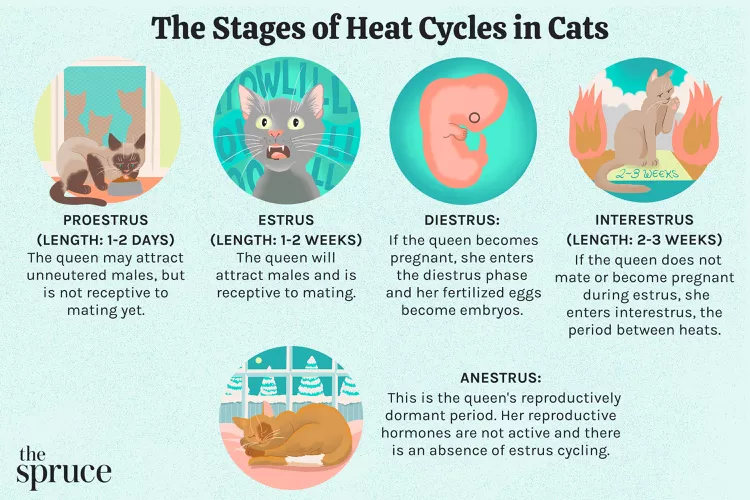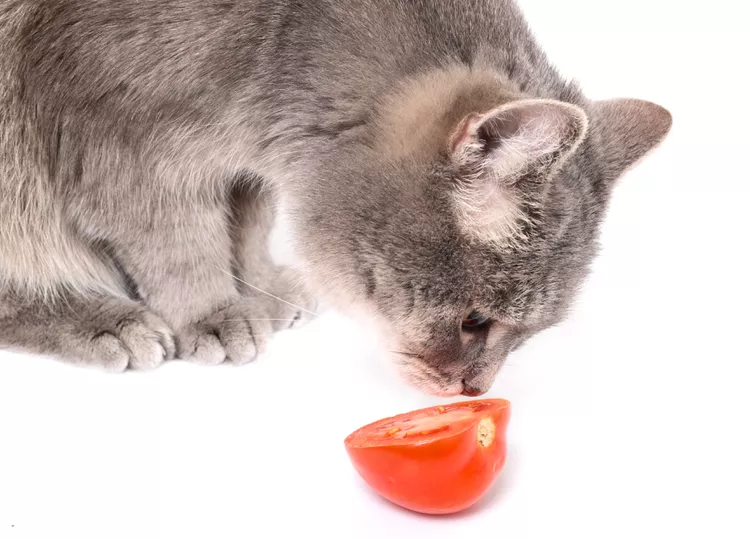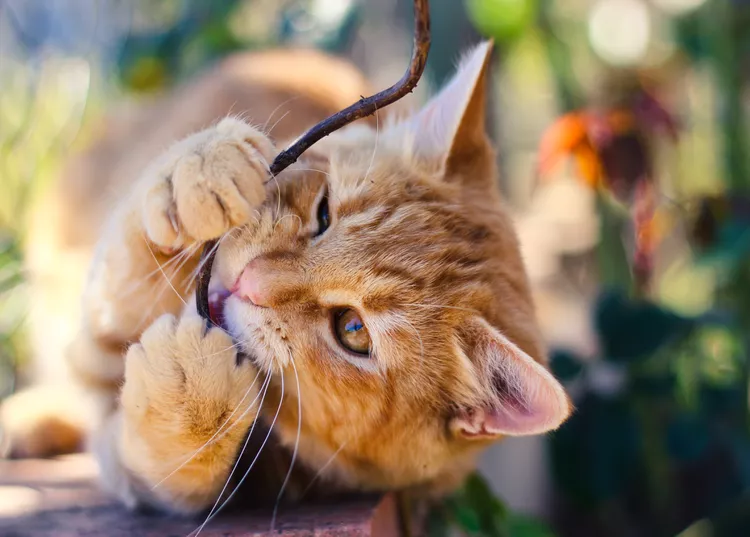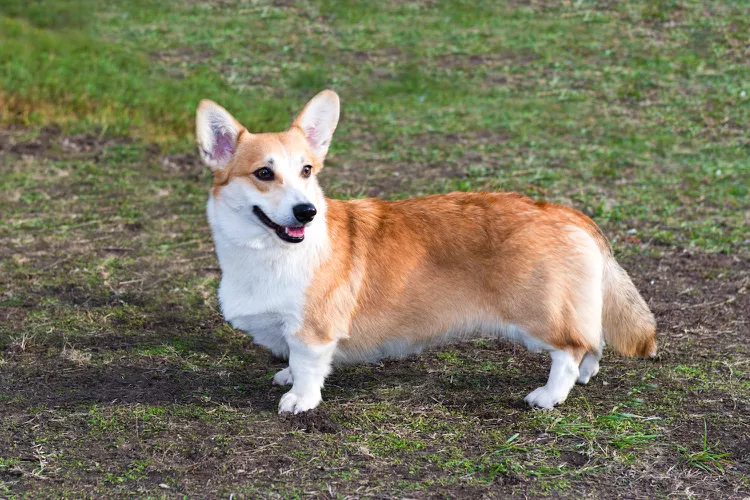
Dogs can lick their butts as part of their normal grooming, but excessive butt grooming is not a normal behavior. It's not only unappealing to watch, but it can be indicative of a health problem in your pooch.
In fact, dogs who lick their butt could be signaling a deeper problem, ranging from food or skin allergies to an unexpressed anal gland. Below, we've delved into four of the main reasons dogs lick their butts, as well as some treatments for each of the issues.
A dog will begin to excessively lick their butt due to inflammation and irritation around the area. Although this inflammation and irritation can arise from a variety of reasons, they all require a veterinary visit to determine the cause and to create a treatment plan to put your dog at ease.
Most dog owners know that dogs have anal glands—sometimes called scent glands—located on either side of a dog's rectum. These glands, once full, usually express on their own when your dog has a bowel movement. Sometimes, though, they don't express as they should. This could be because of a loose stool, the anatomy of the gland and duct itself, allergies, or any combination of the three. Pressure begins to build as the glands fill with fluid. Worse yet, as the fluid sits in the glands, it can get thicker, leading to even more pressure. Dogs can feel this built-up pressure and will try to express their anal glands on their own. They can do this by scooting their butt across the floor or by chewing and licking at the rectal area.
Dogs are susceptible to various intestinal parasites, such as hookworms, whipworms, and tapeworms. These can cause loose stool and diarrhea, which can irritate the rectal area. Remember that loose stool can also prevent the anal glands from expressing as they should—and that too can lead to irritation. Sometimes certain intestinal parasites will have eggs that make their way to your dog's rectal area and this can also lead to irritation, which can lead to butt-licking.
In dogs, allergies manifest as itchy and inflamed skin. This can include the skin around your dog's rectal area and, sometimes, the anal glands as well. It's also not uncommon for dogs with skin allergies to also have secondary skin infections. This can exasperate the inflammation and irritation already present. If your dog suffers from skin allergies, this definitely can be a contributing factor to your dog's butt licking.
As food is digested, allergens can cause a reaction anywhere in the body, including the anal glands. If your dog is licking their butt repeatedly, they could be experiencing a food allergy. Work with your vet to figure out your dog's food allergy. They will most likely suggest eliminating a certain food for a while to see if the allergies clear up.
If you feel that your dog is licking its butt excessively, the first thing is to schedule a vet appointment. Regardless of what is causing your dog's rectal irritation, it will require medications to stop the inflammation. Your dog will also need to have their anal glands checked to ensure they aren't full and that the contents within the glands are normal fluid.
If your dog's primary issue ends up being related to the anal glands, your vet may prescribe an antibiotic to help with any infection that may be present. The fluid that normally fills up the anal glands has a distinct color and consistency, and expressing them in the vet's office, while possibly uncomfortable, should not be overtly painful. If the contents of the anal glands are thick, discolored, or contain pus, or if your dog reacts painfully, this could be the result of an anal gland infection. If your dog frequently needs its anal glands expressed, either at the vet or the groomer, there are things you can add to their diet such as canned pumpkin to bulk up their stools. There are also supplements available over the counter that are made specifically for this problem in dogs.
Intestinal parasites can be easily diagnosed with a stool check. Most parasitic worms will deposit microscopic eggs within a dog's stool, and these can be detected at your vet. Other intestinal parasites, such as tapeworms, deposit egg packets that can be seen by the naked eye. These can look like small rice grains either within the stool or in the fur around the rectum. If your dog does have intestinal parasites, your vet can easily treat them with a dewormer. Keeping your dog up to date on their monthly oral heartworm prevention can also help as these products prevent the more common intestinal parasites. Getting your dog's stool checked regularly, either once a year or twice yearly is also prudent to help prevent any problems that may be caused by intestinal parasites.
If your dog is having an active flare-up, with skin irritation, inflammation, and infection, your vet will prescribe medications to soothe the itch and treat the infections. If your dog has potential environmental allergies, there is a blood test that your vet can send to an outside lab for analysis. Once environmental allergens are determined, the vet can start therapy to desensitize your dog's immune system to the allergens.
If you notice your dog licking or chewing at its butt obsessively, call your vet right away. While usually not serious, your vet can help you get to the bottom of your dog's fixation on their own bottom.

100+ White Cat Names
White cat names can pay homage to their wintry fur, like Snowflake or Frosty, but can also be playful, such as Marshmallow, or elegant, like Pearl.
117 Funny Cat Names That'll Make you Chuckle
The top funny names for cats play on your kitty's personality, size and shape, or general catitude.
15 Unique Male Cat Names
Instead of commonplace Tiger or Oscar, our list of unique male cat names will hopefully inspire you to pick something different.
How Long Are Cats in Heat?
How long are cats in heat? Learn about the heat cycles of cats, also called estrus, as well as the reasons you should spay your cat.
Are Christmas Trees Poisonous to Cats and Dogs?
Many people worry about their pets knocking over the Christmas tree, but what happens when they chew on it? Learn if Christmas trees are toxic to pets.
Can Cats Eat Peanut Butter?
Peanut butter is not toxic to cats, but it might not be the best choice of treat for them.
Can Cats Eat Tomatoes?
Tomatoes are a healthy snack for humans but should mostly be avoided for our feline friends.
How to Stop Destructive Chewing in Cats
Cats are known to chew on objects such as shoes, furniture, and cords. Learn how to stop this behavior to keep your cat (and household objects) safe.
Neutering Your Dog Explained
What does it mean to neuter a dog? Learn about neutering or castration in dogs and why it is done. Find out what to expect when your dog is neutered.
Cardigan Welsh Corgi: Dog Breed Characteristics & Care
Learn all about the Cardigan Welsh Corgi, a unique-looking dog breed known for its larger-than-life personality and complete devotion to its family.
Littermate Syndrome in Dogs
Dogs that grew up together as littermates may have conflicts when they live together as adults. Here's everything you need to know about littermate syndrome in dogs.
Why Do Dogs Eat Dirt?
Some dogs eat some strange things. What does it mean if your dog eats dirt and when should you be concerned?
Everything You Need to Know About Raising Your First Cat
Whether you are thinking about getting a cat or just adopted your first one, these are the things to know to make your relationship a lasting one.
8 Ways To Help Your Cat Lose Weight
Cats who are at a healthy weight are happier, more agile, and tend to live longer. Here are 8 tips for managing a cat weight loss programme
Heart Disease in Cats
Like humans, cats can get heart diseases that may lead to serious problems. Learn all about symptoms along with the causes, treatment, and prevention.
Is Coconut Oil Safe for Cats?
Coconut oil is touted as a miracle food. Can coconut oil improve your cat's health? Is coconut oil even safe for cats?
Why Do Cats Stare at Walls?
Cats can have some quirky behaviors, including staring at walls. Why do cats do this and when should you be concerned?
Patellar Luxation in Dogs
If your dog has a knee that seems to pop out of place, it may have a patellar luxation. Find out what this means and what can be done about it.
13 Signs of Cancer in Dogs
The signs of cancer in dogs may include lumps and bumps, lethargy, vomiting, diarrhea, pain, abdominal swelling, and more. Signs may be mild or obvious depending on the type of cancer and its severity. Learn common signs of cancer in dogs so you’ll know when to call the vet.
Ear Mites in Puppies and Dogs
Ear mites can be a big discomfort for puppies and dogs. Learn about the causes, treatment, and prevention to keep mites away from your pets.